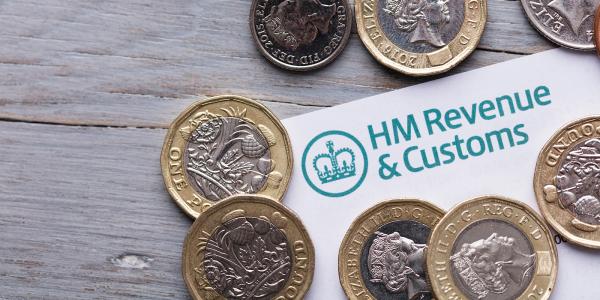High income child benefit charge
Our guidance is aimed primarily at low-income people. However, you might be on a low income but have a partner on a higher income. If your partner is affected by the high income child benefit charge (HICBC), there are some traps which you need to be aware of. We explain what the charge is and what you need to do to avoid the traps.

Content on this page:
Overview
The HICBC is a tax charge designed to claw back child benefit where you or your partner has adjusted net income over a certain threshold. If you do not have a partner, the HICBC can apply based on your own adjusted net income.
For tax years up to and including 2023/24, this threshold was £50,000. From 2024/25, the threshold is increased to £60,000.
Adjusted net income (explained further on GOV.UK) is not necessarily the same as taxable income, as there may be deductions you can make from your income when working out if you or your partner has exceeded the threshold. Note that adjusted net income includes the taxable value of benefits-in-kind from your employment, such as a company car or private medical insurance. These figures apply for each tax year – so you have to look at your income for the year starting on 6 April one year through to 5 April the next year.
The HICBC is calculated based solely on the adjusted net income of the higher-income partner in a couple – regardless of who claims or receives the benefit, the other partner’s income level or whose child the benefit payments are for. This can lead to problems for couples who prefer to keep their financial affairs separate and confidential. It can also present problems when a couple separates. You can read more about these issues on our page HICBC: issues on separation.
A ‘couple’ for this purpose includes two people who are living together as if they are married or in a civil partnership, as well as those who are married or in a civil partnership (unless separated).
Thresholds for tax years up to 2023/24
For tax years up to and including the year ended 5 April 2024, child benefit is effectively withdrawn at a rate of 1% for each £100 earned over £50,000 a year by the partner with the higher adjusted net income. Therefore, the benefit is fully withdrawn where income of the higher-income partner reaches £60,000 a year.
Under these rules, it is possible for the charge to apply where your household income is just £50,100 (in the case where only one partner has any income) whereas it is also possible for your household income to be as high as £100,000 and for the charge not to apply (if, for example, each partner had income of £50,000).
For an example of how the charge is calculated, see the information at revenuebenefits.
Thresholds for tax years from 2024/25
From 6 April 2024, child benefit is effectively withdrawn at a rate of 1% for each £200 earned over £60,000 a year by the higher-income partner. Therefore, the benefit is fully withdrawn where income of the higher-income partner reaches £80,000 a year.
Under these rules, it is possible for the charge to apply where your household income is just £60,200 (in the case where only one partner has any income) whereas it is also possible for your household income to be as high as £120,000 and for the charge not to apply (if, for example, each partner had income of £60,000).
New child benefit claims
If you do not currently claim child benefit, the increase in thresholds from 6 April 2024 may mean it is financially worthwhile to make a new claim, or to revoke an election not to receive child benefit payments.
If you make a new claim to child benefit, your entitlement is automatically backdated by three months (provided you were eligible for child benefit in that period). For new claims on or after 6 April 2024 but before 8 July 2024, this might mean that some of the backdated entitlement falls in the 2023/24 tax year.
Where this is the case, the amount of the child benefit entitlement which would have fallen in the 2023/24 tax year is treated as an entitlement for 2024/25 instead. This aims to prevent a high income child benefit charge arising for 2023/24.
Note that the same does not apply in the case where you revoke an election not to receive child benefit payments (see below). In this case, if you choose backdate that revocation to before 6 April 2024, then a high income child benefit charge may arise for 2023/24 on the backdated payment to the extent that it relates to the 2023/24 tax year (even though if may be paid after 6 April 2024).
You can read more about this on GOV.UK.
The lower-income partner
The HICBC applies to the higher-income partner in a couple, irrespective of the income of the other partner. Therefore, as a low-income or non-earning partner you can find yourself a member of a household where the charge applies, even though it is your partner who has the legal obligation to pay it.
Where the charge applies to your partner, it has consequences for the whole household. The charge reduces the income available to your household, but it can have more subtle and indirect consequences. The most common of these is where, as a household, you decide not to claim child benefit where the charge would apply because there would appear to be no point in doing so. This is especially likely to be the case where your partner has net adjusted income such that the whole amount of child benefit is clawed back and would be required to file a self assessment tax return as a direct result of the charge. Many people decide it is not worth this additional administration burden for no financial return.
However, not claiming child benefit in this scenario means that you will miss out on National Insurance (NI) credits which are given to child benefit claimants until the child is 12 years old. These can be critical to build entitlement towards a state pension and other benefits, if you do not work or you are not entitled to NI credits on some other basis. In addition, child benefit can only be backdated for three months – thus, if you do not claim child benefit and miss out on NI credits as a result, there is no way to claim NI credits retrospectively beyond the three-month period.
Also, not claiming child benefit will have a consequence for the child, as they will not be automatically issued with a National Insurance number when they reach 16. This will mean the child will need to actively obtain one and they may need to have a face-to-face interview to do so.
Couples liable to the HICBC are instead encouraged to claim the benefit, and in order to avoid having to pay it back and file a tax return, you can opt not to receive payments. This is done by ticking a box on the child benefit claim form (Question 62, Section 4) or, if child benefit is already in payment, by completing a separate form.
If you have stopped your child benefit payments because of liability to the HICBC but your circumstances change (for example, you have an unexpected reduction in income such that the child benefit is not fully clawed back via the HICBC) then you can restart child benefit payments. You can also request to reinstate payments for the two previous tax years, if applicable, by contacting the child benefit office via telephone. You should make a note of the information provided.
Requirement to file a tax return
Individuals affected by the HICBC are generally required to register to file a self assessment tax return (if they do not already do so) even if their only source of income is from PAYE. However, the charge for a tax year may be collected via PAYE by means of an adjustment to a tax code in that year. In these circumstances, under current rules the person liable must still file a tax return for the year.
If you owe the charge as part of your self assessment balancing payment for a tax return, in certain circumstances you can have this collected via PAYE in the tax year after the one in which you file that return. Note that the return must be filed on or before 30 December for this to be possible. Importantly, it is the higher-income partner in a couple who has the obligation to file a self assessment tax return to report the HICBC, not the lower-income partner, even if the latter is the one who receives the child benefit.
If no tax returns have been filed for prior years
If you were liable to the HICBC in prior years and no self assessment tax returns have been filed, you should contact HMRC straight away and register for self assessment so you can file tax returns for the years concerned. Where tax (including the HICBC) is unpaid, penalties may be charged for the failure to notify.
If you receive a penalty for failure to notify, it may be possible to appeal. In general, HMRC are unlikely to accept ignorance of the charge as a reasonable excuse. However, there have been a number of cases in which the taxpayer has successfully argued that their lack of knowledge was a reasonable excuse.
If you are in this situation, we suggest you seek professional advice.
More information
You can find government information about the HICBC on GOV.UK.
You can also find a calculator on GOV.UK to estimate your (or your partner’s) liability to the HICBC.
If you require further detail, you may find the information at revenuebenefits helpful.



